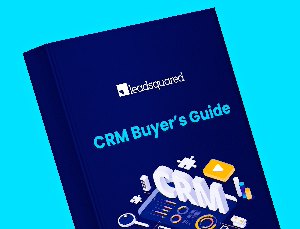It’s hard enough to attract leads to your funnel, but what happens when they do finally start to come in? Companies that use a sales lead tracker will know the answer to this question immediately, and if you’re not one of them, you might need to reconsider your approach.

Sales lead tracking is the practice of monitoring your leads’ status in the sales funnel. Knowing where your leads are in the process will allow you to take the right actions to move them further down the funnel.
Here’s what you need to know about using a sales lead tracker and how you can successfully implement it in your organization.
Why Sales & Marketing Teams Need Sales Lead Tracking Software?
Sales and marketing alignment is becoming ever more critical. Marketing’s role in the process has increased significantly in recent years, given that much of the sales cycle now occurs before leads ever reach out to a company.
Lead tracking helps to bridge the gap between sales and marketing so that each department can determine where the leads came from and how qualified they are for sales reps to begin the conversation. Leads that aren’t qualified for sales will need to be nurtured until they can be passed on to the sales team.
Correct lead tracking allows both teams to be confident in their approach to each lead, and thus increases the chance for a conversion or sale.
How Does a Sales Lead Tracker Work?
Sales lead tracking actually begins with marketing. Leads are filtered through a series of requirements before ending up with a sales rep. Here’s what the process looks like in action:

Lead Capture
Leads are automatically captured and sorted. Typically, the lead will consist of a contact name, an email address or phone number for follow up, and the source of the lead (e.g. Google ads, social media, etc.). Depending on how they enter your sales funnel, you might have other information, such as the specific need they want to fill or a product they’re interested in.
Related: Website visitor tracking guide
Lead Qualification
Depending on how the lead interacted with your marketing material, they will either be a marketing-qualified or sales-qualified lead. Marketing-qualified leads took action related to marketing, such as signing up for an email newsletter. Sales-qualified leads show signs of purchase readiness, such as downloading a coupon.
Lead Scoring
Lead scoring is an automated process of ranking leads according to their likelihood to buy. Those that exhibit more sales-readiness qualities will earn a higher lead score. This helps salespeople see where their best opportunities lie so they can take quick action and shorten the sales cycle.
Lead Distribution
If you have multiple sales reps, you want to make sure each one is receiving leads. But equally important, they need to receive leads that they’re capable of selling to. Lead distribution ensures that the right leads are matched with the right sales rep. This could be based on the type of product being sold or by the number of leads in a sales rep’s queue.
Sales Tracking
Once sales take possession of the leads, they can use lead tracking to monitor their progress through the funnel. This process removes much of the guesswork associated with lead management. You know where your deals stand at all times, and in turn, you can tailor your approach to each lead based on their unique buyer journey.
Where’s the value in Sales Lead Tracking Software?
Working with one sales lead as time doesn’t give you much to manage. You will likely know without having to guess exactly where is, the actions you’ve taken to move them through the funnel, and even their likelihood to make a purchase.
But most sales reps are dealing but dozens of leads at a time, which can make it difficult to remember every detail about each lead. Sales lead tracking software gives you a clear, visual representation of your leads’ status at all times so you can streamline follow up, make accurate forecasts, and know exactly what you need to do next.
It’s also beneficial for marketers to track the journey of sales leads. More than three-quarters of marketers admit having trouble calculating ROI on their campaigns because they don’t know the end result. In addition, nearly half of all sales reps feel they don’t have enough information before reaching out to a prospect. Tracking leads in this way helps both teams feel confident in trying to move customers through the funnel for an optimal outcome.
Try Lead Tracking for Free with LeadSquared!
Bottom line: if you’re not using sales lead tracking in your organization, you should at least consider the value it brings to your organization. Sales teams that use it report feeling more informed and more qualified to handle leads, especially since the tracking process is automated and allows them more time to sell.
Leadsquared offers powerful lead tracking features that can benefit marketing and sales teams alike. Try us free for 15 days and see the value for yourself!







![[Webinar] Maximizing ROI with WhatsApp CRM](https://www.leadsquared.com/wp-content/uploads/2024/07/Maximizing-ROI-with-WhatsApp-CRM-webinar-popup.gif)
